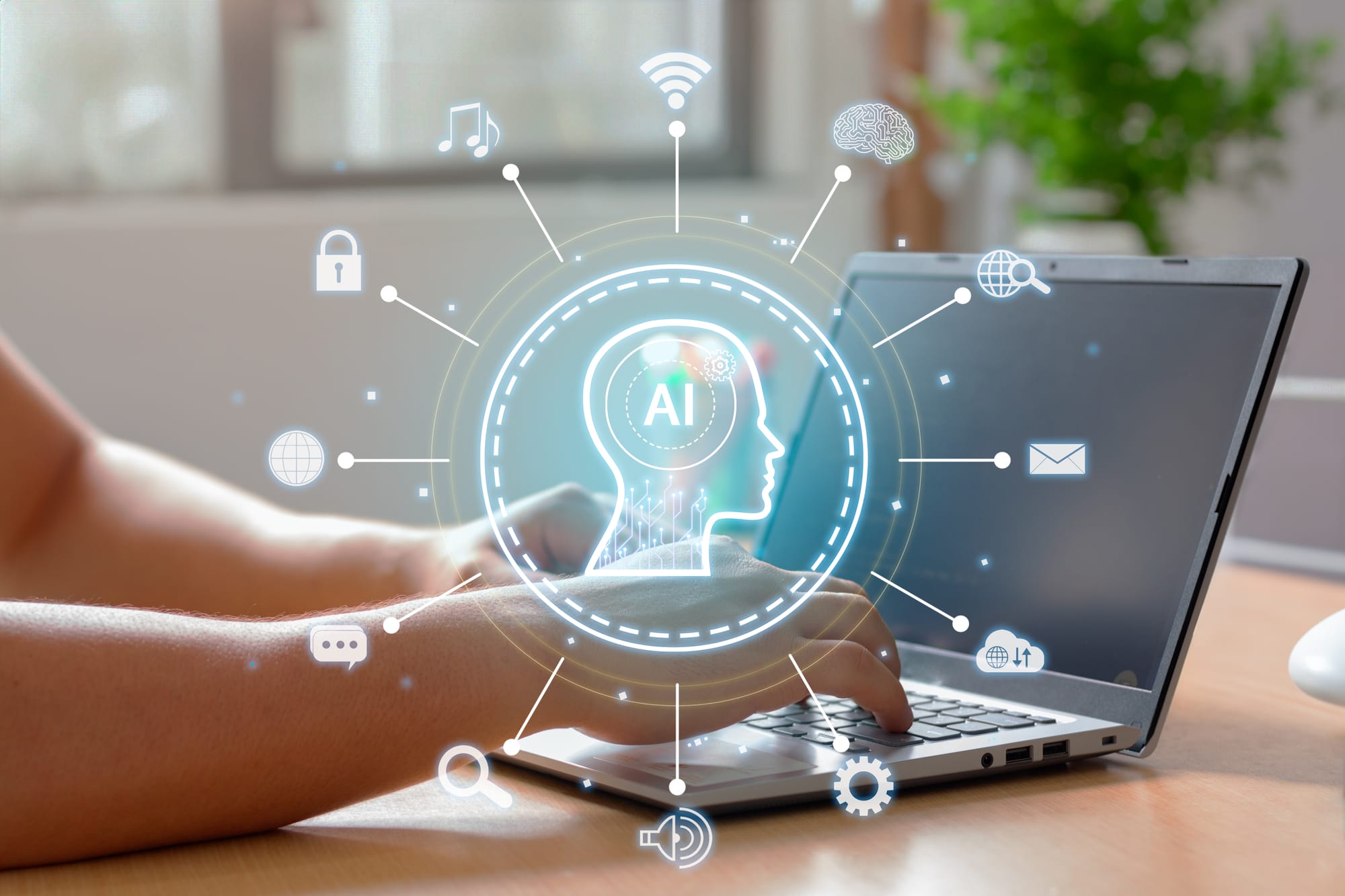Like many industries, the meeting and events sector is set to be transformed by new advancements in artificial intelligence and machine learning. The benefits will be significant, with event planners empowered by new automation that frees them to be more strategic and inventive, whilst avoiding the time-sink of repetitive manual tasks.
In this four-part blog series, MeetEngland and Hire Space discuss some of the key opportunities for event planners for maximising the opportunities presented by AI and smart technology.
In this opening feature, we’ll look at the impact of events on creative event design, and how planners can create extraordinary experiences for their delegates and stakeholders.
The Technological Shift
It’s worth first outlining what’s changed in artificial intelligence in the last 12 months, and why it’s suddenly such a hot topic in events.
The last year has been pivotal in the evolution of AI, which has become more adept at understanding language and complex human emotions, and at generating content that's indistinguishable from that created by people.
It is better able to learn from smaller data sets and make decisions more like a human, which means it can be used in more complex situations, like helping businesses quickly understand what their customers want from a product or service.
AI has been around for decades, but the pace of change in the last 12 months has been truly extraordinary. This blog post explains a brief history of recent AI and is worth a look for anyone wanting to jump into the details.
But long story short, all of these things bring tangible benefits to event planners, who build their careers on their ability to serve clients, delegates, sponsors and event stakeholders efficiently, and to high standards of imagination and creativity.
AI and Event Creativity
So, how can AI be harnessed to supercharge event innovation? There are many ways, but here are some key ones:
It Can Help You Understand Your Audience, at Scale.
Step one for creating great creative events is understanding who your event attendees are, and what they like, and what they want from your event. This has never been easier.
Recent advances in sentiment analysis through AI allow you to categorise feedback into positive, negative, or neutral sentiments and identify specific themes or issues mentioned by customers. AI allows you to do this in minutes, rather than hours or days.
Pre-event, you can quickly interpret data you’ve previously collected on your customers using tools like MonkeyLearn or Artiwise, and use this to inform event set-up, supplier and sponsor choices, and the content you create.
During the event, AI tools such as Sentimently can monitor and analyse the mood and opinions of attendees in real time by assessing social media posts and interactions within event apps. This means you can react in real-time, and make on-the-fly adjustments to the event, ensuring any concerns are addressed promptly and positive sentiments are amplified, thereby maximising attendee satisfaction.
Post-event, the process starts all over, so you’re always learning what your audience wants, and always being inspired on how to be creative to meet their expectations. Tools such as SurveyMonkey and Typeform can be used to collect and analyse attendee feedback efficiently, so you’re better set than ever to move onto the planning stage for the next event.
It Can Make Events More Personal
Building experiences that speak directly to attendees is the holy grail of event design. AI’s ability to generate personalised content quickly and efficiently adds a potent weapon to event planners’ arsenal. From customised event schedules to personalised summaries and recommendations, AI enables the delivery of content that speaks directly to the interests and preferences of each attendee.
For instance, it can suggest sessions, workshops, or networking opportunities based on an individual's interests, behaviour, and interaction history. Tools such as ChatGTP, Claude and Gemini use AI to help you with this.
CRM Systems like Salesforce and HubSpot integrate with event platforms to leverage existing customer data for personalised event marketing and engagement.
This capability not only enhances the attendee experience but also allows for a level of personalisation that was previously difficult to achieve at scale.
And this isn’t limited to the pre-event planning stage. Once the event begins, if certain sessions are particularly popular, the system can suggest additional slots or similar content, ensuring that more attendees can benefit from high-demand topics.
Combined, the various AI tools out there mean you can create content that speaks to your audience more quickly than has ever been possible, so you have more time to focus on event design.
It Can Supercharge Interactivity
If you get your event audience interacting, you’ve probably put on a great event. There are a number of ways to use AI to achieve this.
Firstly, it can create more engaging sessions using natural language processing (NLP), AI can facilitate real-time Q&A sessions, allowing attendees to submit questions via an app or website. AI can prioritise questions based on popularity or relevance, and provide instant responses to frequently asked questions. It can also facilitate real-time polling and feedback, which conduct instant polls and collect instant feedback during sessions. Speakers can then adjust their presentations based on audience responses.
Secondly, it can facilitate better networking. AI algorithms will analyse participants' profiles, interests, and objectives to suggest the most relevant connections pre-event. Remember, the ability to do this well depends on how well you’ve understood your audience!
Beyond this, AI can assist in scheduling relevant meetings by considering the availability, interests, and networking goals of attendees. This can include arranging one-on-one meetings or facilitating small group discussions on specific topics. Check out AI-powered tools such as Grip, Brella and Whova.
And then, it will prompt participants to take the next steps in building their professional relationships, such as suggesting a follow-up meeting and sharing contact information. This helps maintain the momentum of new connections. Facilitating networking used to be a very manual task for planners. Now, it can be seamless.
Finally, it can build lasting communities by identifying shared interests among participants and suggesting the creation of discussion groups or forums. This not only enhances the event experience but also fosters long-term professional communities, which will make your future event all the more powerful.
It Can Create Immersive Experiences
There’s been a lot of talk about Virtual and Augmented Reality in events in recent years. The advances in Artificial Intelligence only make these technologies more powerful, and it’s likely we’ll see more and more VR and AR in the near future, enhanced by AI.
Here are a few examples to get you thinking:
- Interactive Booths and Exhibits: AR can turn static booths and exhibits into interactive experiences. By scanning a QR code or using a dedicated app, attendees can view 3D models of products, animated displays, and additional information overlaid onto the physical booth space. This approach allows for a deeper exploration of exhibitor and sponsor offerings. As an example, car manufacturers did this to good effect at the last CES (Consumer Electronics Show), using VR to provide immersive test drives. Or, at the most recent IAAPA, exhibitors used VR to simulate rides and attractions, offering attendees a taste of new experiences without the need for large physical setups.
- Gamification of Event Space: AR can create a gamified layer over the event space, encouraging attendees to explore and interact with the environment. For example, interactive maps where participants collect virtual items or information points spread throughout the venue can make networking and exploration more engaging.
- Immersive Training and Workshops: VR offers a unique platform for conducting workshops or training sessions where participants can learn through experience. For instance, medical professionals can practise surgical techniques, or engineers can explore machinery in a safe, controlled virtual space, enhancing the learning experience through hands-on practice. The possibilities here are endless, and exhibitors and sponsors are increasingly savvy about how they leverage technology.
These are three examples, but there are hundreds. It’s worth attending industry events such as IMEX, International Confex and IBTM to see some of these in action.
There are many things that only humans can do well, and AI won’t replace these things. But there are myriad ways to use AI to help event planners do things more efficiently, and to increase engagement, personalisation and interactivity at your events.
As Paul Black, Head of Business Events at MeetEngland, says:
“From streamlining the planning process and day-of management to directing and enhancing delegates’ experiences in real-time, AI technology, if managed responsibly, offers significant potential to support event planners in increasing productivity and creating higher engagement across all communications. The technology is evolving at speed and the evolution of AI will be significant in transforming creative and sustainable event design, with the need for all layers of our England event ecosystem to adapt and apply across their communications and operations.”
In our next post, we’ll look at how AI is transforming the venue sourcing process, which will free up a considerable amount of time for event planners, allowing them to focus more on event strategy and creating memorable experiences.
Finally, as this series develops, we’ll recommend AI-powered third-party tools and apps that will help make the lives of event planners easier. Here are the first few to think about:
- Jasper.ai: AI writing tool enhancing content creation efficiency.
- Descript: Audio/video editing software with transcription capabilities.
- Visme: Engaging presentations and visual content.
- Bear Analytics: Data analytics platform for event performance insights.
- DeepL: High-quality language translation service leveraging AI.
- Text Blaze: Automation tool for repetitive typing tasks.
- WordTune: AI tool refining sentence structure for better clarity.
- Sora: Create a video from text.
We’ll keep this list growing as the series progresses.
Get the tech
Find out more about how Hire Space 360 can help streamline your event planning with smart technology, all in one place
Book a call




